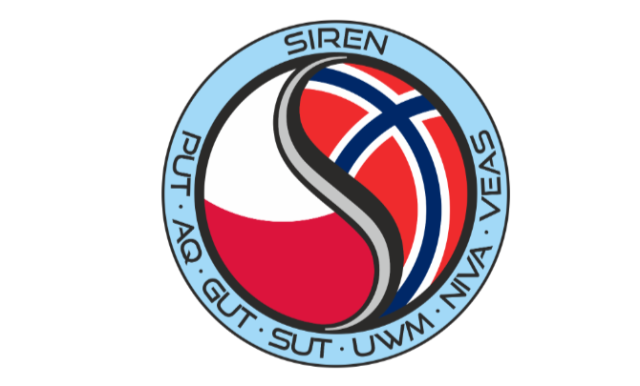SIREN
SIREN (Integrated system for simultaneous recovery of energy, organics and nutrients and generation of valuable products from municipal wastewater) will develop a system that recovers energy, organics and nutrients from municipal wastewater while simultaneously generating valuable products.

About the project

The overall objective of the project is to integrate innovative processes into traditionally operated municipal wastewater treatment systems, facilitating their transformation into water resource recovery facilities. The aim is to significantly enhance the recovery of inherent resources and the generation of valuable products, thereby incorporating the wastewater sector into the circular economy and reducing its environmental footprint.
In the SIREN project, innovative and cost-effective technologies will be developed to recover inherent resources (such as energy, nutrients, and organic substances) and generate valuable products (such as hydrogen and biopolymers). In the long term, the project outcomes will support the transition of wastewater treatment plants (WWTPs) from the traditional "end-of-pipe" approach to a model of responsible natural resource management.
The specific objectives of the project include:
- Design temperature-phased anaerobic digestion in which hydrolysis, acido- and aceto-genesis are separated from the methangenesis. This will not only allow for enhanced methane production but in future it will be possible to use the first stage as carboxylic platform for production of organic compounds other than methane.
- Recovery of humic acids by adsorption on an adsorbent possibly suitable for use in agriculture for fertilizing purposes; choosing a proper place of humic acids recovery from reject waters before or after nitrogen & phosphorus recovery.
- Recovery and characterization of the valuable bio-products, such as extracellular biopolymers.
- Identification of the most promising combination of options to produce pure hydrogen gas (H2) by MECs directly from the organic matter present in the raw wastewater.
- Identification of the most promising integrated technology for N&P recovery from reject water. In the SIREN project, the objective is to harvest >80% of nitrogen & phosphorus in nutrient-rich locations.
- Development of a metagenomic bioprocess monitoring scheme that allows obtaining easy to interpret results. The obtained results will be used in practice to improve the bioprocess efficiency.
- Determination which applications of the different recovered products are suitable for based on the products’ composition, level of impurities and hazardous substances.
NIVA is responsible for:
- Enhancing biofuel production through combined measures in wastewater and sludge treatment lines
- Assessing the quality and reusability of the generated products
To this end, NIVA will:
- Identify the most promising combination for producing pure hydrogen (H₂) using microbial electrolysis cells (MECs) from organic matter in raw wastewater
- Identify membrane processes to effectively concentrate ammonia
- Identify membrane filtration processes that tailor water quality to the needs of specific reuse applications or end-users.
- Determine the composition and levels of impurities and hazardous substances in resources recovered from various WWTP streams
- Explore the potential for reusing treated wastewater effluent in urban, agricultural, and industrial settings
- Recommend suitable applications for the recovered products
The SIREN project is coordinated by the Poznan University of Technology and the consortium consists of seven partners from Poland and Norway; five research institutions and two end-users (i.e., WWTPs).
Project partner | Abbreviation | Country |
PUT | Poland | |
AQ | Poland | |
GUT | Poland | |
SUT | Poland | |
UWM | Poland | |
NIVA | Norway | |
VEAS | Norway |
 Pawel Krzeminski
Pawel Krzeminski
 Christian Vogelsang
Christian Vogelsang
 Anne Luise Ribeiro
Anne Luise Ribeiro
 Gabrielle Hairabedian
Gabrielle Hairabedian
 Marc Anglès d'Auriac
Marc Anglès d'Auriac